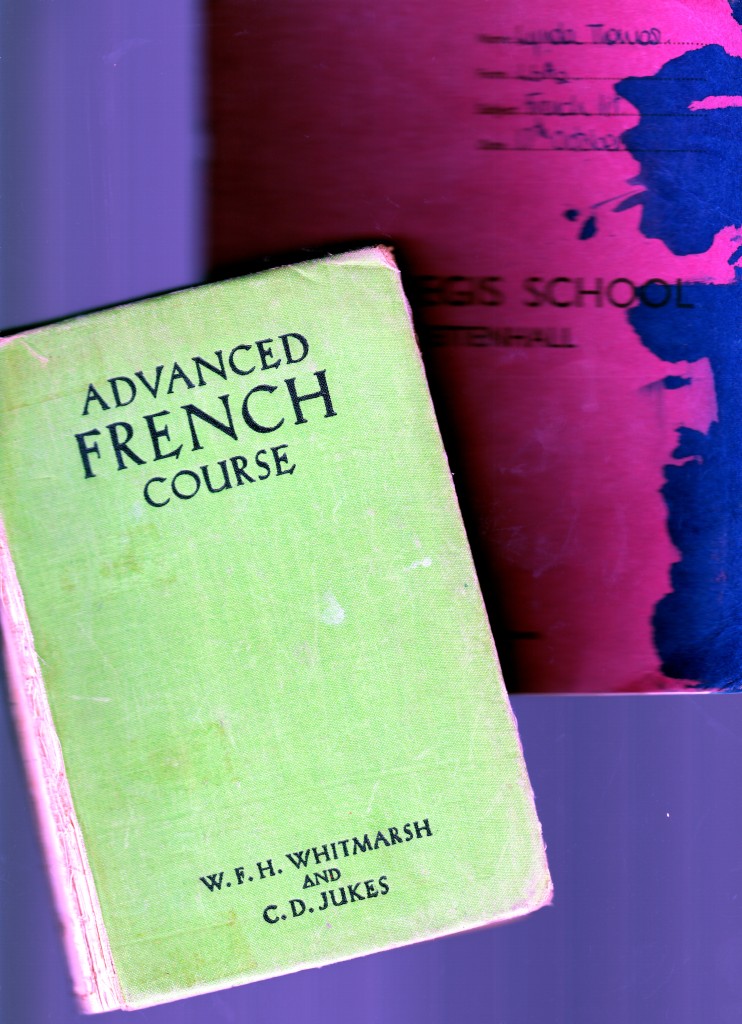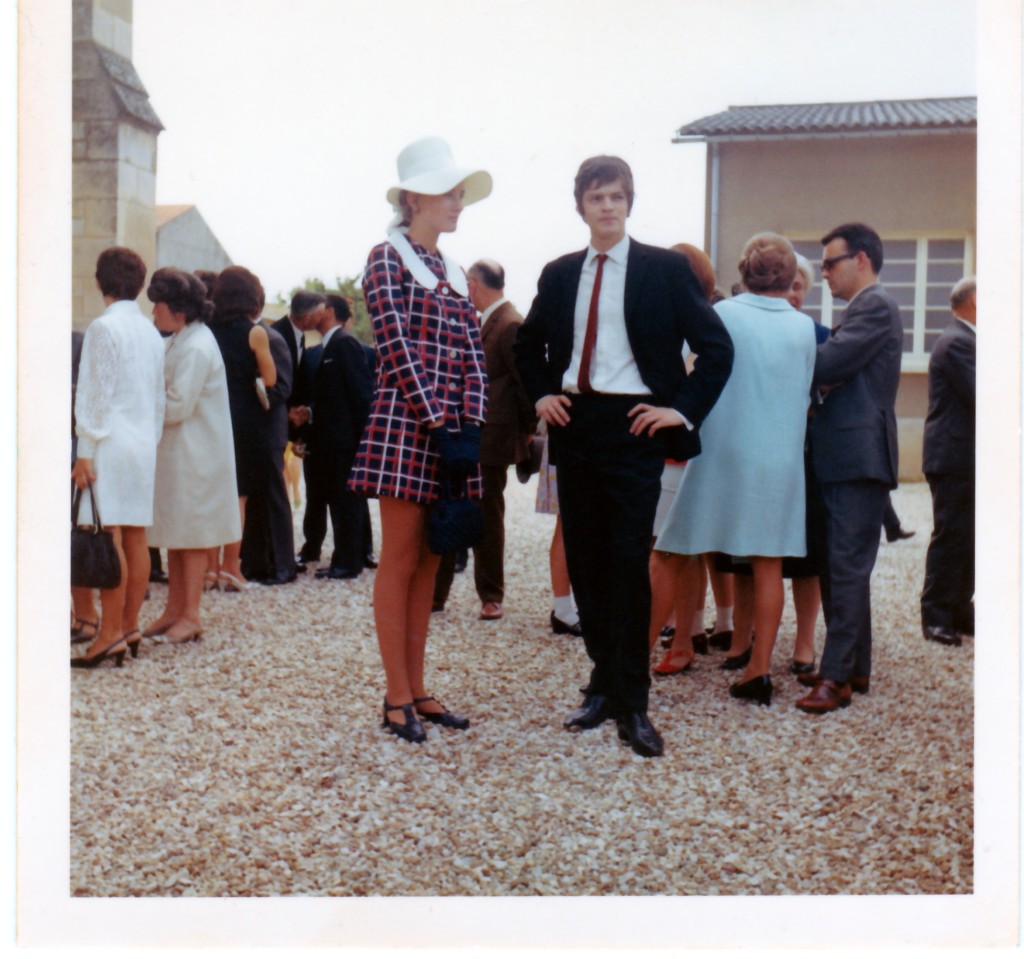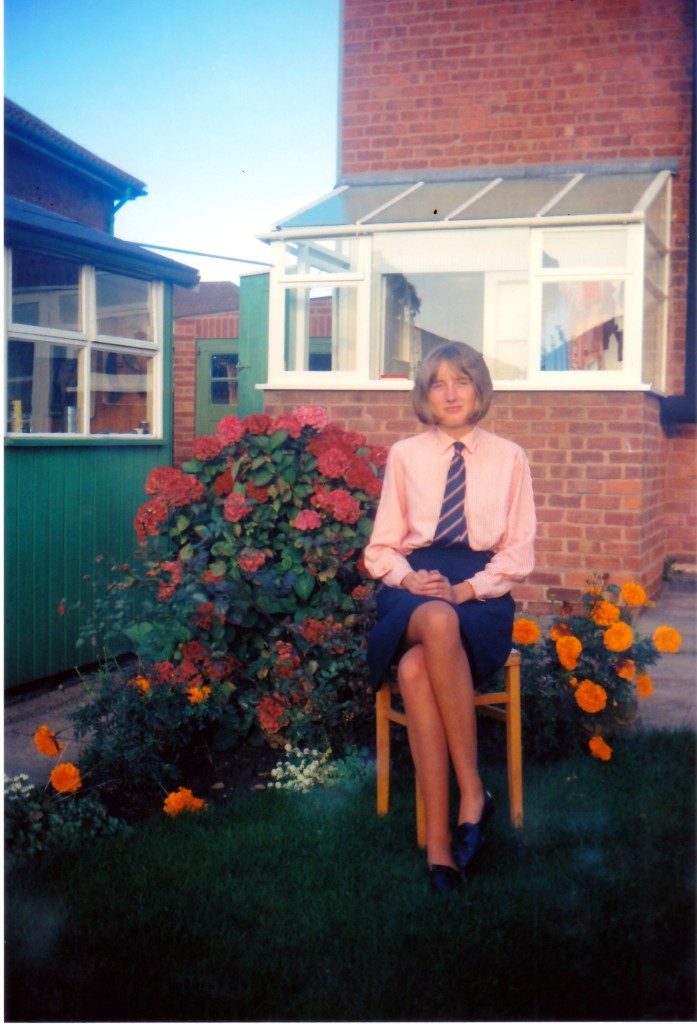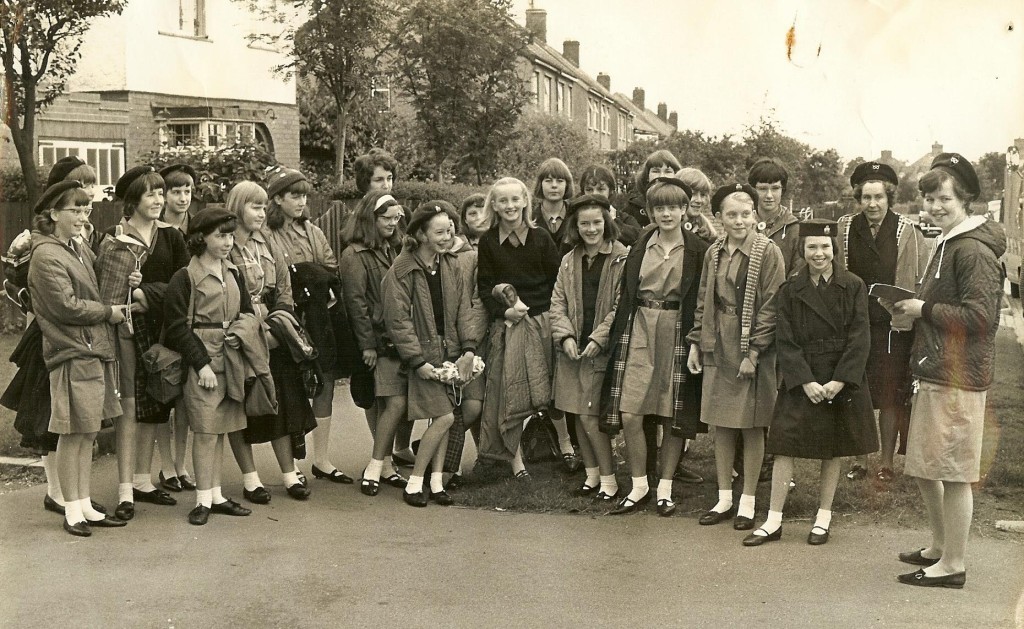In the sixth form school had become a life I enjoyed. I handed in my homework on time, and got good marks. My teachers started talking about Oxford entrance. A special new uniform was designed for the sixth form girls: a royal blue skirt and tunic, over a white top of our choice. It didn’t even look like school uniform. We experimented with very short skirts, and lacy transparent tops. Some of our male teachers gazed at us lasciviously, and we enjoyed and were troubled by their attention.
My Latin teacher, Mr Crowther was not like the others. He was a handsome Yorkshire man, who had lost one of his legs in a rugby accident. He walked with a stick and a slight limp, and had to press a lever on the wooden leg to sit down. In Latin classes we spent a lot of time discussing how societies could be organised more equally, moral dilemmas, relationships. One day he said to us ‘You are the chosen ones; the same thing happened to me, you will have a different life to the rest of your family’. We wondered what he meant.
I was a bit doubtful about doing ‘A’ Level Latin, but Mr C. seemed to take it for granted I would continue and I didn’t like to disappoint him. One of the perks of the ‘A’ Level course was being invited round to Mr C.’s house for dinner. He lived round the corner from school, in a detached modern house, with his wife Anna and two little girls. These evenings were completely unlike anything we did at home. They were, I suppose, my introduction to the middle-class dinner party, but because I felt at ease with Mr Crowther it was not as terrifying an initiation as it might have been. When I got there with the others in the Latin group the little girls were still up and very pleased to see us as they knew bedtime would be a bit delayed. When they finally went to bed we felt very grown-up indeed, and the conversation turned to the kinds of political and philosophical subjects we were used to discussing in class with Mr C., as well as more domestic matters – should you wash up straight after a meal, or leave the dishes and enjoy the rest of the evening? I could imagine my mother’s reaction to that idea, but when Mr C. argued in favour of savouring the meal it all seemed perfectly normal and natural, especially since the argument was accompanied by Anna’s home-made meringues with fresh cream. They were even more of a revelation.
Our women teachers did not invite us for dinner, but we liked them and wanted to be them, or at least the young ones who were married, mostly, and soon disappeared to have babies. In earlier years Miss Lewer, our French teacher had been a figure of fun, with her spinsterish bun and flat sandals. By the time we were in the sixth form we were fond of Miss L. and appreciative of her sound teaching. Thanks to her I knew my French irregular verbs, and never forgot to make the agreement with the preceding direct object. She told us one day that we didn’t have to marry to be happy, but we didn’t believe her.
Suddenly Miss L. was taken ill, and we visited her in hospital. We never really found out what was wrong with her, just that it was something to do with her lungs. She told us she knew something was wrong when she felt out of breath walking up to our classroom on the third floor. She asked how our French lessons were going with the replacement teacher, and we said it’s fine, even though it wasn’t. In fact the lessons were spent on jokes and flirtations. When the teacher wanted us to read aloud from the Whitmarsh textbook he would ask us to cast our beautiful eyes on to the next page. I was flattered, but worried that we were going to fall behind with our French. We were in dangerous territory, fair game in our short blue skirts.



 Setting out for camp. Janet and I are in the centre of the group, standing on the grass. I am clutching an anorak, and not wearing my beret.
Setting out for camp. Janet and I are in the centre of the group, standing on the grass. I am clutching an anorak, and not wearing my beret.